May 31, 2025 | 03:13 GMT +7
May 31, 2025 | 03:13 GMT +7
Hotline: 0913.378.918
May 31, 2025 | 03:13 GMT +7
Hotline: 0913.378.918
Concerned about the consumption of agricultural products for farmers, the People's Committee of Binh Dinh Province organized a conference to deploy solutions to stabilize the production, business, and consumption of agricultural products in the province.
Nguyen Thi To Tran, Deputy Director of the Department of Agriculture and Rural Development of Binh Dinh, informed us about the situation of agricultural production in the area: Currently, in Binh Dinh, the area of crops meeting VietGAP standards is 284.4 hectares, the area of organic agriculture is 121.6 hectares; there are 3 growing area codes, and 1 packaging facility granted an export code to China. Binh Dinh has also just been approved by China for 5 fresh coconut growing areas, and the province has 21 domestic growing area codes with 178.8 hectares.
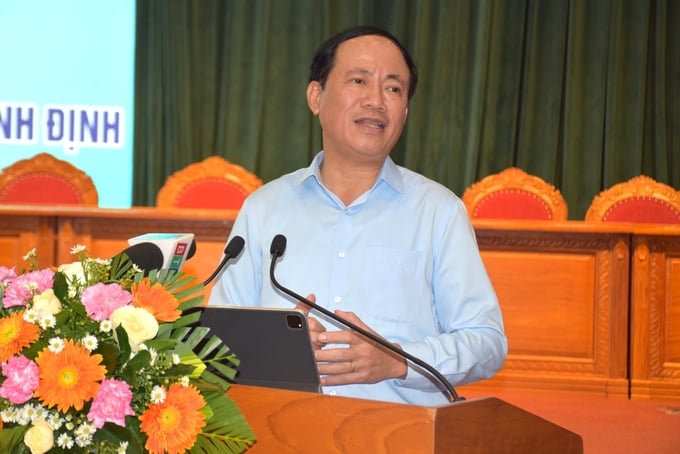
Pham Anh Tuan, Chairman of Binh Dinh Provincial People's Committee, suggested that farmers change their production mindset to have quality products to attract businesses to invest in deep processing factories. Photo: V.D.T.
Regarding livestock and aquaculture, Binh Dinh has a high-tech pig herd of 97,590 heads, a cow herd of 79,800 heads associated with the brand "Binh Dinh High-Quality Beef", and 110 hectares of high-tech shrimp farming area with an output of 3,800 tons.
According to Nguyen Tu Cong Hoang, Vice Chairman of Binh Dinh Provincial People's Committee, in recent times, the province has focused on building and implementing many projects and plans to organize production in a linked direction, contributing to increasing the value of agricultural, forestry and fishery products. Thanks to that, Binh Dinh has developed concentrated, large-scale commodity agricultural production areas and organized chain production for many essential products.
In addition, clean agriculture and organic agriculture models are also gradually expanding. The province's main agricultural products include rice, chili, peanuts, coconuts, grapefruit, mangoes, etc., of which some items have the potential to develop into concentrated commodity products, aiming for export such as chili, grapefruit, coconut, mango. In particular, chili and coconut are receiving attention from processing and exporting enterprises.
Despite many efforts, the production and consumption of agricultural products in Binh Dinh still face many challenges. The "good harvest, low price" situation still occurs frequently, while input costs for agricultural production are always high.

Nguyen Thi To Tran, Deputy Director of the Department of Agriculture and Rural Development of Binh Dinh, said that the agricultural product trading system needs to be improved to promote consumption. Photo: V.D.T.
In particular, the lack of a closed value chain from production to consumption is one of the main reasons why Binh Dinh's agricultural production lacks sustainability. The key to solving this situation is the strong participation of enterprises and cooperatives. These units play an important role in acting as a focal point for production according to orders, receiving technology transfer, collecting, pre-processing, processing agricultural products, negotiating prices, signing contracts, and expanding consumption markets.
Binh Dinh opens 4 agricultural product consumption models, including chain consumption: Farmer households, the main focal units are cooperatives-enterprises and processing and consumption facilities
According to Mr. Nguyen Dinh Kha, Deputy Director of Binh Dinh Department of Industry and Trade, the above model creates a sustainable production and consumption chain. Farmers have transferred techniques, produce according to requirements, comply with standards for quality agricultural products, and form large-scale planting and breeding linkage areas. However, this model is still limited due to farmers' poor awareness of the chain linkage model, breaking the chain linkage commitment.
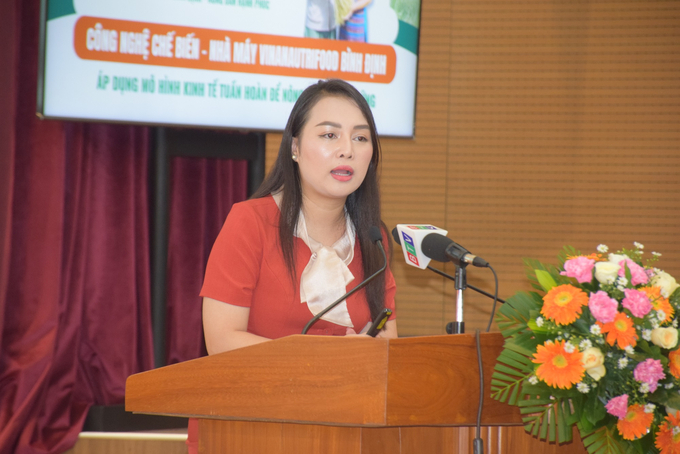
Nguyen Thi Diem Hang, General Director of Vinanutrifood Binh Dinh Joint Stock Company, suggested that Binh Dinh needs to identify key crops and have different products to attract consumer businesses. Photo: V.D.T.
According to Nguyen Thi Diem Hang, General Director of Vinanutrifood Binh Dinh Joint Stock Company, Binh Dinh needs to identify key agricultural crops to develop effectively. “Vietnam is an agricultural country. If Binh Dinh does not have a difference in products, attracting investors and purchasing partners will be challenging,” Hang emphasized.
Tran Thi Thuy, Director of Tran Gia Agricultural Products and Food Processing Export Company, said that this unit has invested in a project specializing in processing salted chili at Dai Thanh Industrial Park (Phu My District). The company aims to consume 6,000-10,000 tons of chili annually until 2027, equivalent to 300 hectares of growing area. In 2024 alone, the company needs to purchase 6,000 tons of chili.
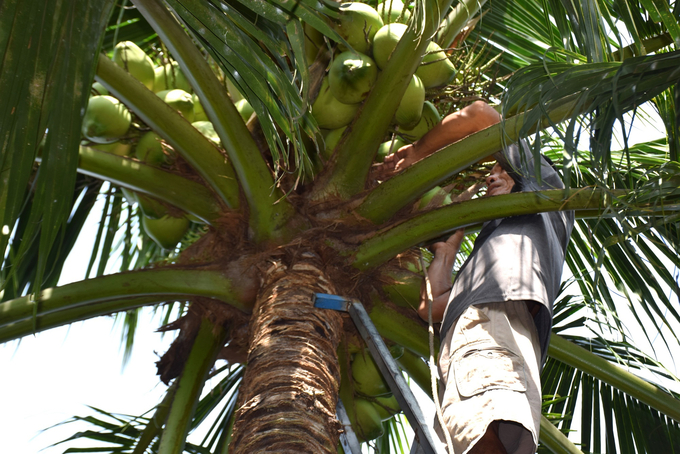
Vinanutrifood Binh Dinh will build a factory to process 20,000 fresh diamond coconuts per day, 30,000 skull coconuts per day and 20,000 coconut flesh per day. Photo: V.D.T.
Pham Anh Tuan, Chairman of Binh Dinh Provincial People's Committee, affirmed that Binh Dinh is making efforts to sustainably consume agricultural products and invite businesses to invest in deep processing factories. Up to now, Binh Dinh has invited Vinanutrifood Binh Dinh Joint Stock Company to invest in an agricultural processing factory in Tay Son district and San Ha Company Limited to Binh Dinh to invest in and build a livestock and poultry slaughterhouse and food processing center in Phu Cat district.
Tuan especially requested farmers to strictly comply with technical standards, especially VietGAP and GlobalGAP standards. Tuan also noted the importance of strictly controlling the use of pesticides, insecticides, and chemicals in production to protect the health of consumers and the environment. Authorities must monitor and guide farmers to comply with safe production processes while eliminating harmful products.
Translated by Huong Giang
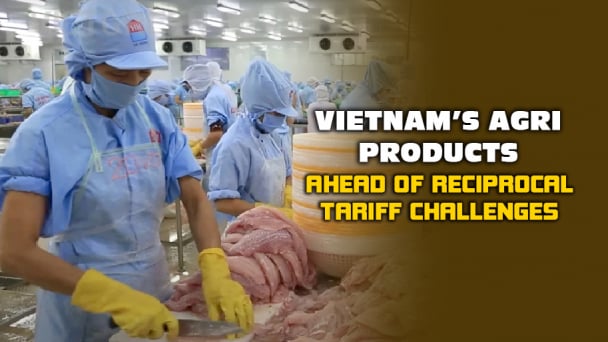
(VAN) Reciprocal tariffs are exerting pressure on U.S. exports, prompting Vietnamese firms to shift their focus to Muslim markets, Thailand, and Brazil.
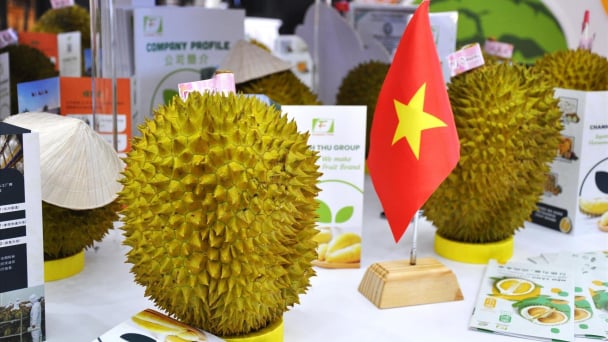
(VAN) A free booth for two years at Xinfadi, Beijing's largest wholesale market, will be allocated to Vietnam's agricultural products.
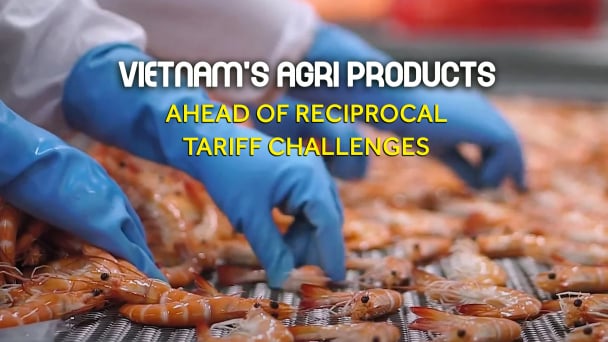
(VAN) Vietnamese shrimp exporters are actively looking for alternative markets and accelerating shipments to the United States in response to the pressure of impending reciprocal tariffs. This is occurring during a temporary tariff suspension.

(VAN) The import-export turnover between Vietnam and Singapore rose amid a trade rebound, with machinery, electrical equipment, and fuels making up the majority of the transaction value.

(VAN) Director General of the General Administration of Customs of China, Ms. Sun Mai Jun, has pledged to implement measures that will ease the import process for Vietnamese agricultural products.

(VAN) Although Vietnam is still increasing its coffee exports, the industry is currently in the process of determining market strategies in response to the U.S. imposition of reciprocal tariffs.

(VAN) With rising demand in Muslim-majority countries, Halal certification is becoming a critical passport for Vietnamese agricultural products seeking sustainable market access and consumer trust in the Middle East and Africa.